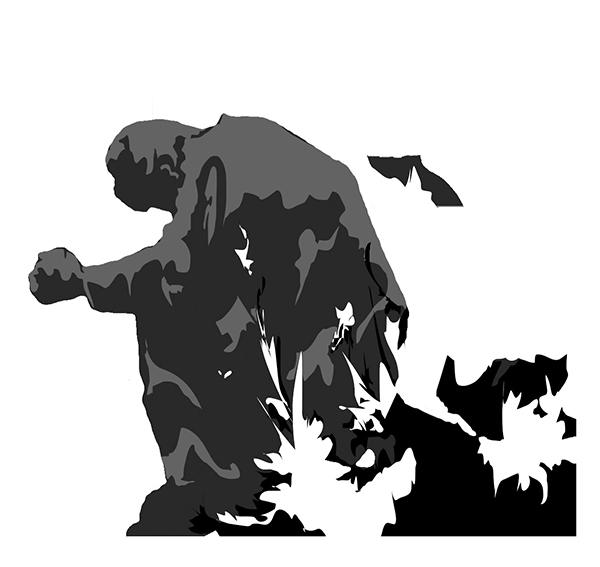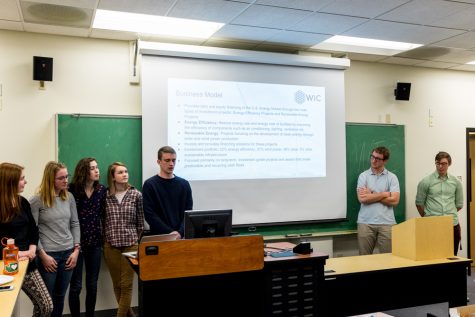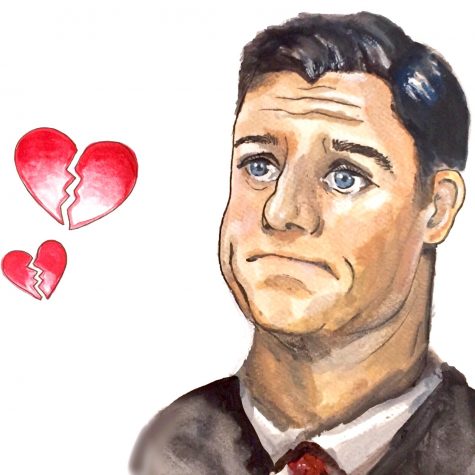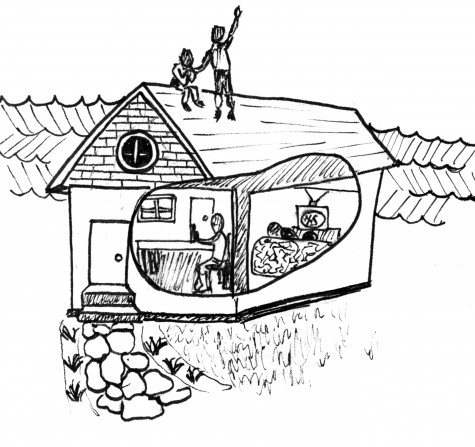Daring to Fail

November 5, 2015
Illustration by Eric Rannestad.
Failure is a trite topic. It has been trotted out time and time again, raked over by great minds from all eras and walks of life. Yet it remains pertinent. We love to laud the transformative, growth-inducing, character-building results of failure. We love to say how important failure is to true success, for strengthening resilience, for discovering ourselves outside of our external accomplishments. All these things are true, and yet, failure absolutely sucks. This piece is not about blindly praising failure, but rather seeing its value in a nuanced light: we can’t address failure without a nod to its discomfort, but we also can’t address failure without acknowledging its valuable effect on our lives.
I’ve failed at my fair share of things and, knowing myself, I’ll likely continue in such a manner. College, however, is an Everest of craggy challenges waiting to snag us into the tumult of failure. It is a breeding ground for subtle tripwires, waiting to burst into catastrophe whenever we misstep. Whether in academics, social life, or romantic relationships, there are countless faux pas lying in wait during the course of a college career.
In a sense, wrestling with this inevitable failure is exactly what this time in our lives is for. As we climb towards adulthood, we’re tasked with figuring out who we are, what we want to do, and what we envision for our futures–no easy feat. If we journey into the arena and explore, take risks, and challenge ourselves, we will stumble. Our egos will be bruised, our sense of self-worth challenged. There’s a high likelihood it’ll hurt sometimes. But this pain forces us to build our identities around our characters, not just our accomplishments. Just because we’ve failed doesn’t mean we’re failures.
We won’t excel like we did throughout our youths. We’ll make seemingly irreparable mistakes. We’ll humiliate ourselves beyond salvation. We’ll try something new and crash spectacularly. These things will happen; they are facts of life. But the resiliency of the human spirit is impressive. We can be knocked down time and time again and still rise up every time. In rising, we learn much about ourselves. We learn that worth is not inherently attached to external success.
Humans are like eggs. When we first confront failure, we tend towards resembling a raw egg. When our shells crack open, it is as if our insides are spilling out, falling all over the place. It understandably feels like the ground has been ripped out from under us. But what we must discover is that we are more like hard-boiled eggs. When our shells crack, it’s a good thing. We learn that our core is not only strong, but also more valuable than our outer veneers of success and perfection. My analogy may be odd, but I hope the message is clear: our value lies in our characters, in who we are as people (hopefully “good eggs”) rather than in the laundry lists of success stories or images of infallibility we attempt to project.
The Buddhist teacher Pema Chödrön wisely said, “Only to the extent that we expose ourselves over and over to annihilation can that which is indestructible within us be found.” Here we are, burgeoning young adults, learning how to meet the world. We have a near infinite number of opportunities to fail. Let’s get to it. Let’s embrace the discomfort and discover paths to our places of indestructibility— indestructibility not in the sense of being immune to failure, but rather in acknowledging that failure cannot break us. We can always find our way through, and we can always try again.








